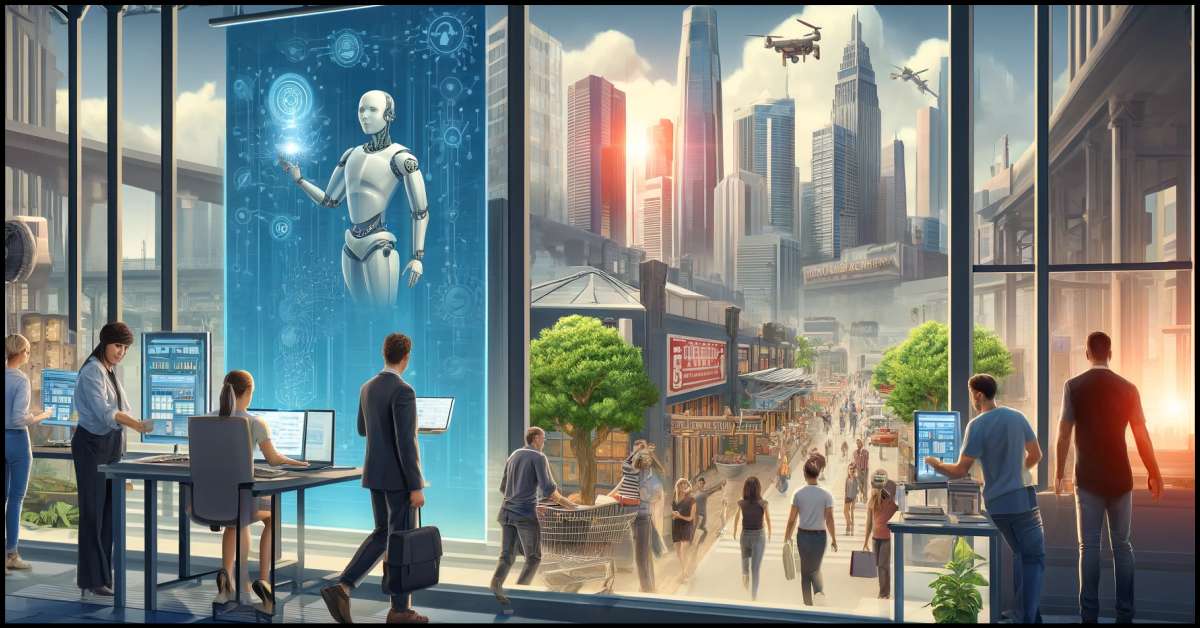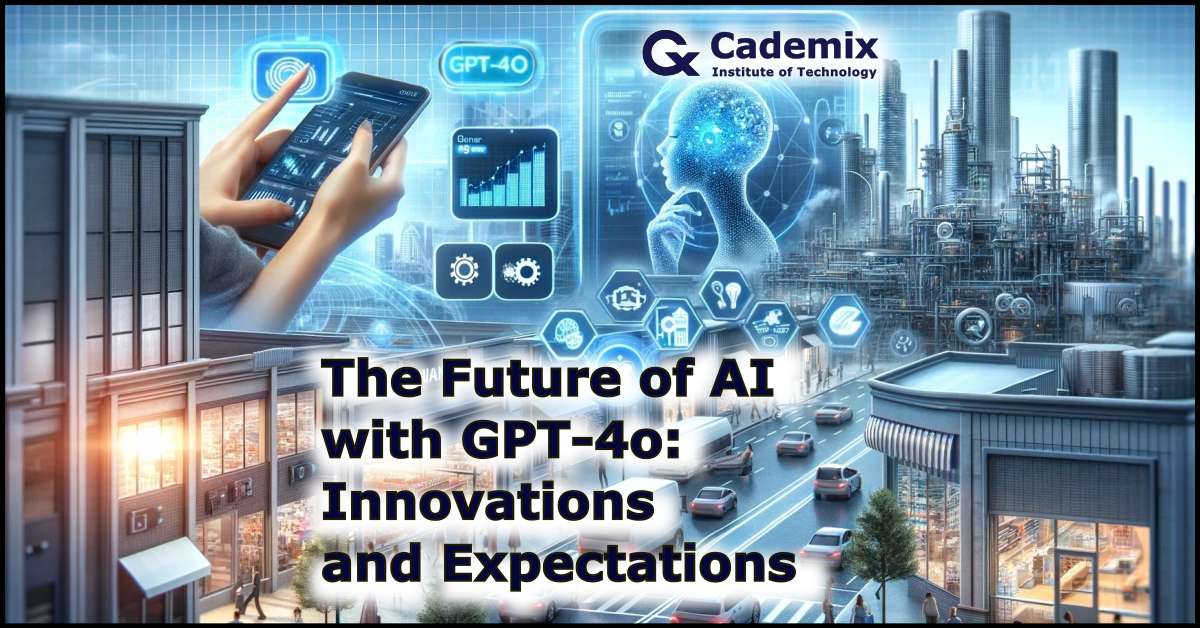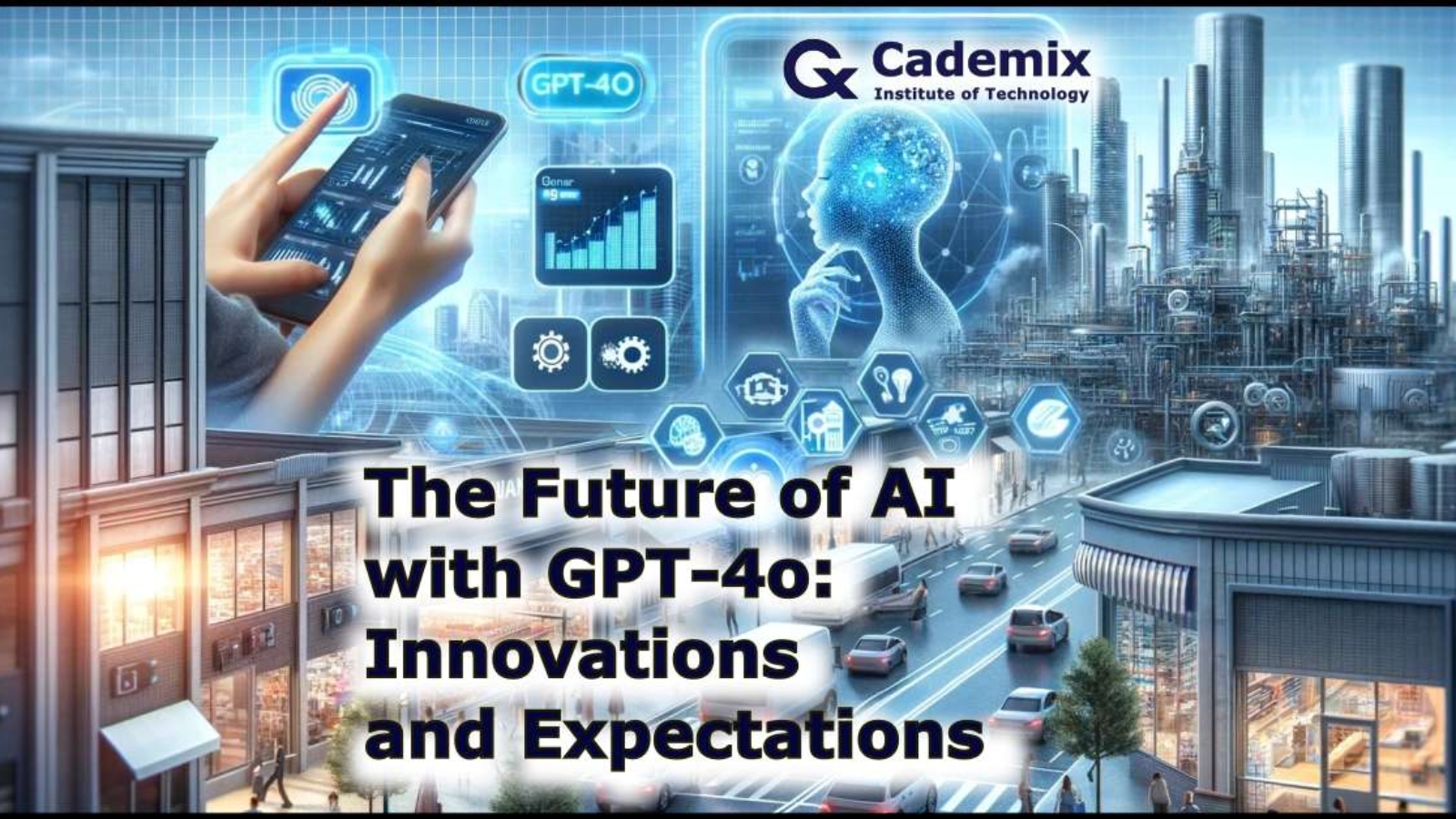Summary
This article discusses the future innovations expected from GPT-4o, potential new applications, and the overall direction of AI technology. It explores the advancements in AI that GPT-4o brings and speculates on its impact across various fields.
Keywords
Future of AI, GPT-4o innovations, AI technology trends, AI future applications, OpenAI advancements, ChatGPT future, AI research and development
Introduction
Artificial Intelligence (AI) has made significant strides in recent years, transforming various aspects of our lives. With the introduction of GPT-4o, AI technology has reached new heights, offering advanced capabilities in text, voice, and vision processing. This article explores the current state of AI, the upcoming innovations in GPT-4o, potential new applications, and the overall direction of AI technology.
Upcoming Innovations
Planned Features for GPT-4o
GPT-4o is poised to introduce several groundbreaking features that will further enhance its utility and performance. One of the most anticipated innovations is the integration of real-time video capabilities. This feature will allow GPT-4o to analyze and generate video content in real time, opening up new possibilities for applications in areas such as video conferencing, media production, and virtual reality.
Another exciting development is the introduction of an advanced voice mode. This mode will enable GPT-4o to engage in more natural and context-aware voice interactions, improving its conversational abilities. Users can expect more nuanced and emotionally intelligent responses, making interactions with AI even more seamless and human-like.
These planned features reflect the ongoing commitment to push the boundaries of what AI can achieve. By continuously enhancing GPT-4o’s capabilities, OpenAI aims to provide users with more powerful and versatile tools that can adapt to a wide range of needs and scenarios.
Expectations for AI Development
The future of AI development is filled with promise and potential. As AI technology continues to evolve, we can expect to see even more sophisticated models that can perform complex tasks with greater accuracy and efficiency. AI will likely become more integrated into our daily lives, assisting with everything from personal productivity to professional tasks.
One key area of focus will be the improvement of AI’s ability to understand and generate human language. This includes not only text and speech but also the subtleties of tone, emotion, and context. As AI becomes more adept at these tasks, it will be able to provide more personalized and contextually relevant responses, enhancing the overall user experience.
Additionally, advancements in AI ethics and safety will play a crucial role in the future development of AI technology. Ensuring that AI systems are designed and deployed responsibly will be essential to gaining public trust and maximizing the benefits of AI.

Potential New Applications
Speculative Uses of GPT-4o in Various Fields
The potential applications of GPT-4o extend far beyond its current uses, promising to revolutionize various fields. In healthcare, GPT-4o could assist in diagnosing medical conditions by analyzing patient data and medical images in real time. This capability could lead to faster and more accurate diagnoses, ultimately improving patient outcomes.
In the field of education, GPT-4o could serve as a personalized tutor, adapting to each student’s learning style and providing tailored instruction. This would make education more accessible and effective, particularly for students who need additional support or have unique learning needs.
In the business world, GPT-4o could enhance decision-making processes by providing real-time data analysis and predictive insights. Companies could leverage AI to optimize operations, improve customer service, and drive innovation. The ability to process and analyze vast amounts of data quickly and accurately would give businesses a competitive edge.
Impact on Daily Life and Industries
The integration of GPT-4o into daily life and various industries is expected to have a profound impact. In everyday activities, AI could assist with tasks such as managing schedules, providing reminders, and offering personalized recommendations. This level of assistance would make daily routines more efficient and enjoyable.
Industries such as finance, retail, and manufacturing are also set to benefit from AI advancements. In finance, AI could enhance fraud detection and streamline financial transactions. In retail, AI could personalize the shopping experience by analyzing consumer behavior and preferences. In manufacturing, AI could optimize production processes and improve quality control.
The widespread adoption of AI technology will likely lead to increased productivity and innovation across all sectors. As AI becomes more integrated into our lives, it will help us tackle complex challenges and unlock new opportunities for growth and development.
The Role of OpenAI
OpenAI’s Mission and Future Plans
OpenAI’s mission is to ensure that artificial general intelligence (AGI) benefits all of humanity. To achieve this, OpenAI is committed to developing safe and advanced AI technologies and making them accessible to as many people as possible. This mission drives the continuous improvement of models like GPT-4o and the development of new AI capabilities.
Looking ahead, OpenAI plans to focus on further enhancing the capabilities of GPT-4o and expanding its applications. This includes ongoing research and development to push the boundaries of what AI can achieve. By collaborating with researchers, developers, and organizations, OpenAI aims to create AI systems that are not only powerful but also safe and beneficial for society.
Ensuring AI Accessibility and Safety
Ensuring the accessibility and safety of AI is a core priority for OpenAI. This involves making advanced AI tools available to a wide range of users, from individuals to businesses and institutions. By democratizing access to AI, OpenAI hopes to empower more people to harness the benefits of this technology.
Safety is also a critical concern. OpenAI is dedicated to developing AI systems that are robust, transparent, and aligned with human values. This includes implementing measures to prevent misuse and ensure that AI operates in a manner that is ethical and responsible. Through ongoing research and collaboration with the global AI community, OpenAI is committed to addressing the challenges and risks associated with AI development.

Conclusion
The future of AI with GPT-4o is filled with exciting innovations and expectations. As AI technology continues to evolve, we can look forward to new features and applications that will transform various aspects of our lives. The advancements in real-time video capabilities, advanced voice mode, and more sophisticated language understanding are just a few examples of what lies ahead.
The potential applications of GPT-4o in healthcare, education, business, and daily life are vast, and promising to enhance productivity, efficiency, and overall quality of life. OpenAI’s mission to ensure that AI benefits all of humanity underscores the importance of making these advancements accessible and safe.
We encourage readers to stay updated on the latest developments in AI and explore the possibilities that GPT-4o offers. If you have any questions or require consulting on how to integrate AI into your operations, our team of experts is here to help. Contact us today to learn more and be part of the future of AI innovation.
References
Introducing GPT-4o and more tools to ChatGPT free users

